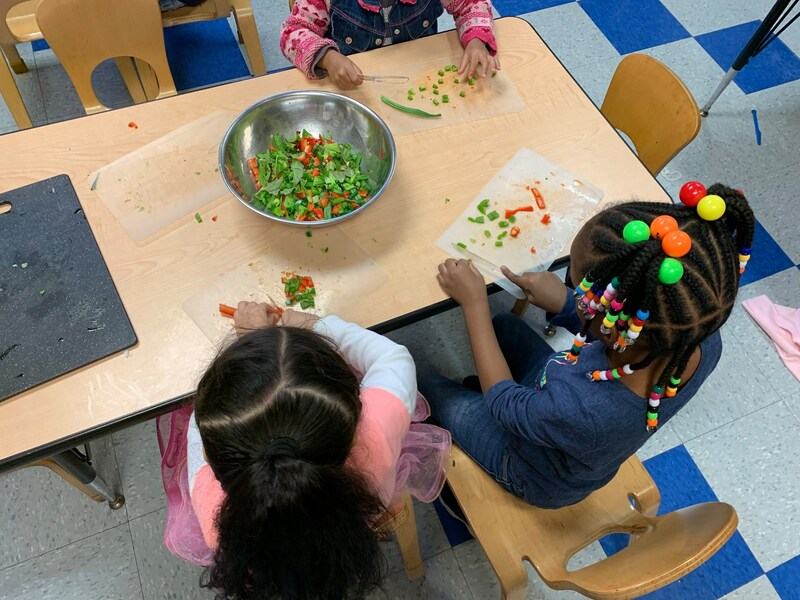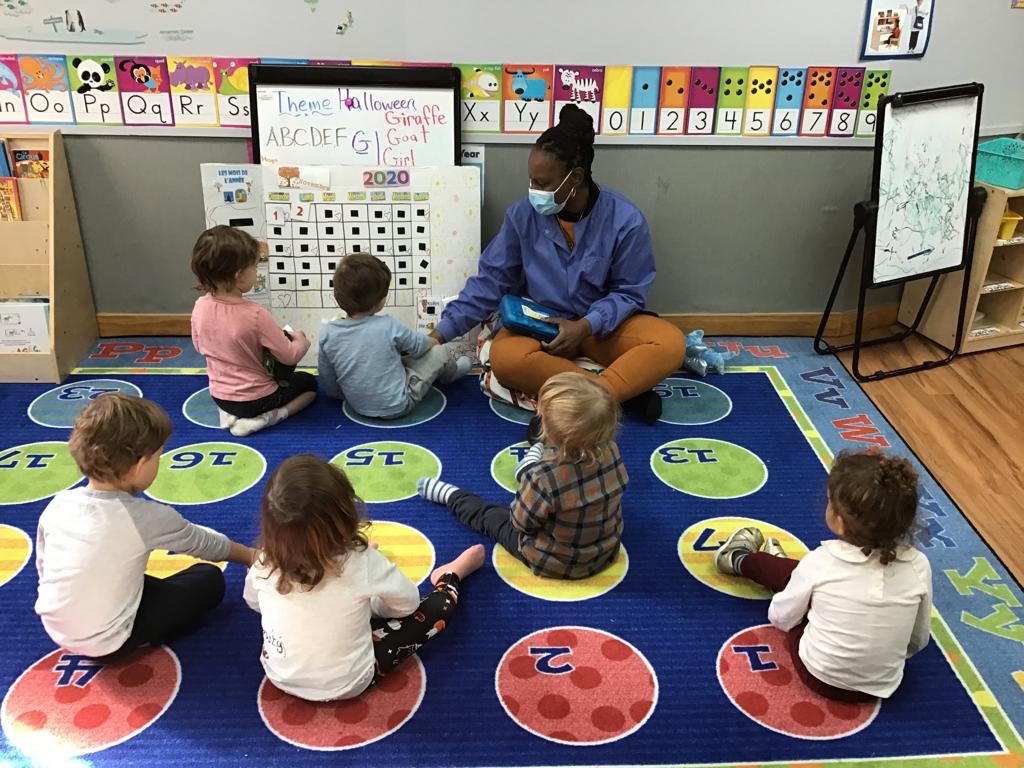
When one of Andrea Weisinger-Ilardi’s 12 employees at Amalgamated Nursery School in Van Cortlandt Village in the Bronx chose to quit rather than comply with the city’s COVID-19 vaccine mandate in late September, it left her and her assistant director scrambling to fill in the gaps.
“My assistant and I have been kind of running back and forth, subbing in classrooms, going to classrooms that need another set of eyes, another set of hands,” she said.
Weisinger-Ilardi has worked at the daycare for 25 years. At a center whose 41 children primarily live in its local community, turnover hasn’t historically been an issue. After more than a month, she found someone to fill the vacancy that she’s happy with.
As the coronavirus pandemic recedes, childcare centers around the city — and the nation — are hustling to meet the demand of parents looking to return to work. Employment in the New York City child care industry was 2.4% lower by the end of October than it was in February 2020, according to the most recent state Labor Department data.
But after the city vaccine mandate for childcare and public school staff went into effect on September 28, some directors at daycares and preschools say they’ve had difficulty hiring or have settled for less qualified applicants, the latest hurdle in the industry’s long standing staffing shortage. Just Thursday, Mayor Bill de Blasio announced the mandate would extend to religious and private schools as well as public schools, effective Dec. 20, which could put more pressure on non-public early-education centers.
The labor shortage is a national issue. Roughly 80% of child care employees surveyed in July said their center was experiencing a staffing shortage, according to a study by the National Association for the Education of Young Children.
“What we’re seeing is that [workers] just can’t make it work, money-wise,” said Abby Petig, research director at U.C. Berkeley’s Center for the Study of Child Care Employment, who advocates for more public investment to stabilize the industry. “We know that early educators are leaving the field because they can go to places like Target or Starbucks, other retail locations where they can make more money. They may even be able to get benefits, which most child care workers don't get.”
The average annual wage for child care workers in New York City is $33,980 as of the first quarter of 2021, according to the state Department of Labor’s most recent data, compared with a $39,280 annual wage for retail employees.
The problem is not so extreme that any centers have had to fully close, at least within the 200-center network of the Day Care Council of New York, said Gregory Brender, director of public policy. Most of the centers who had vaccination concerns only had one or two unvaccinated employees, but that loss can still be significant, he said.
“It was generally a small number of people per center, but the issue is that the centers don’t have a lot of leeway in their staffing,” he said. “Losing one certified teacher can still have a big impact.”
The Day Care Council also handled some applications for vaccine exemptions. Employees who are granted exemptions can retain their jobs as long as they aren’t on site during the hours child care is being provided, Brender said. But if those staff members are supervising children, their reassignment means they still leave shoes to fill when they get an exemption.
Before the mandate went into effect, centers and schools tried to persuade vaccine-hesitant staff, with mixed success. Rebecca Greller, director of Riverdale Country School’s Infant Toddler Center in the Bronx, said her school provided webinars with health care providers, Q&A sessions, and made school nurses available for consultation about the vaccine. Still, one staff member refused the vaccine, leaving her to hire a replacement.
Amid the staffing shortage, some center directors and owners are pushed to settle for less qualified applicants as they fill vacancies.
At the daycare and preschool program at St. John’s Lutheran Church in Richmond Hill, Queens, assistant director Naomi Montalvo hired two college students in September to plug holes because she couldn’t find anyone with more experience. She’s currently operating with one fewer class than she had before the pandemic, even though she has a waitlist of 30 children.
“I don’t want to end up with staff that are not qualified,” she said. “The jobs are out there, but people don’t want to go.”
Vanessa Handal-Ghenania, who manages four daycares and preschools and is in the process of opening three more, also said she’s finding it more difficult to find qualified staff. Her schools are bilingual, teaching children Spanish or French alongside English.
“I am finding that we need more time to hire the candidates with the qualifications we want,” she said. “We find it difficult, especially with the language aspect, but that's why we take more time to do that search.”

The public schools’ vaccination mandate is also impacting child care staffing. Among city Department of Education schools, which includes some preschools, 96% of staff members have been vaccinated, according to the mayor’s latest announcement on the issue. To fill the gap, the city is also recruiting child care staff to work as substitute teachers in schools to meet K-12 staffing needs, sometimes paying more than early childhood programs can offer, Brender said.
The city Departments of Health and Education did not respond to questions regarding the extent of the impact of the vaccine mandate on staffing.
“Staffing is the most bleak that I've ever seen in my career,” said Abeku Hayes, principal at New York City Montessori Charter School, an elementary school in the South Bronx with a preschool program. He said he lost several teachers this year since many moved out of the city when learning was remote, and some didn’t want to return.
When the vaccine mandate when into effect, Hayes knew that if the school’s 11 unvaccinated staff members — including himself — didn’t get the shot, they wouldn’t be able to enter the building. Hayes and all but three of the unvaccinated teachers got vaccinated to comply with the mandate.
Other places had more success. Handal-Ghenania’s centers aren’t under a city contract, so they aren’t subject to the mandate, but she imposed a requirement anyway. The small number of unvaccinated staff among her 45 employees all got the vaccine after the requirement was announced.
“They were very open to getting vaccinated, because at the end of the day they also want what’s best for the kids. And for that I'm very thankful to my staff,” she said.



